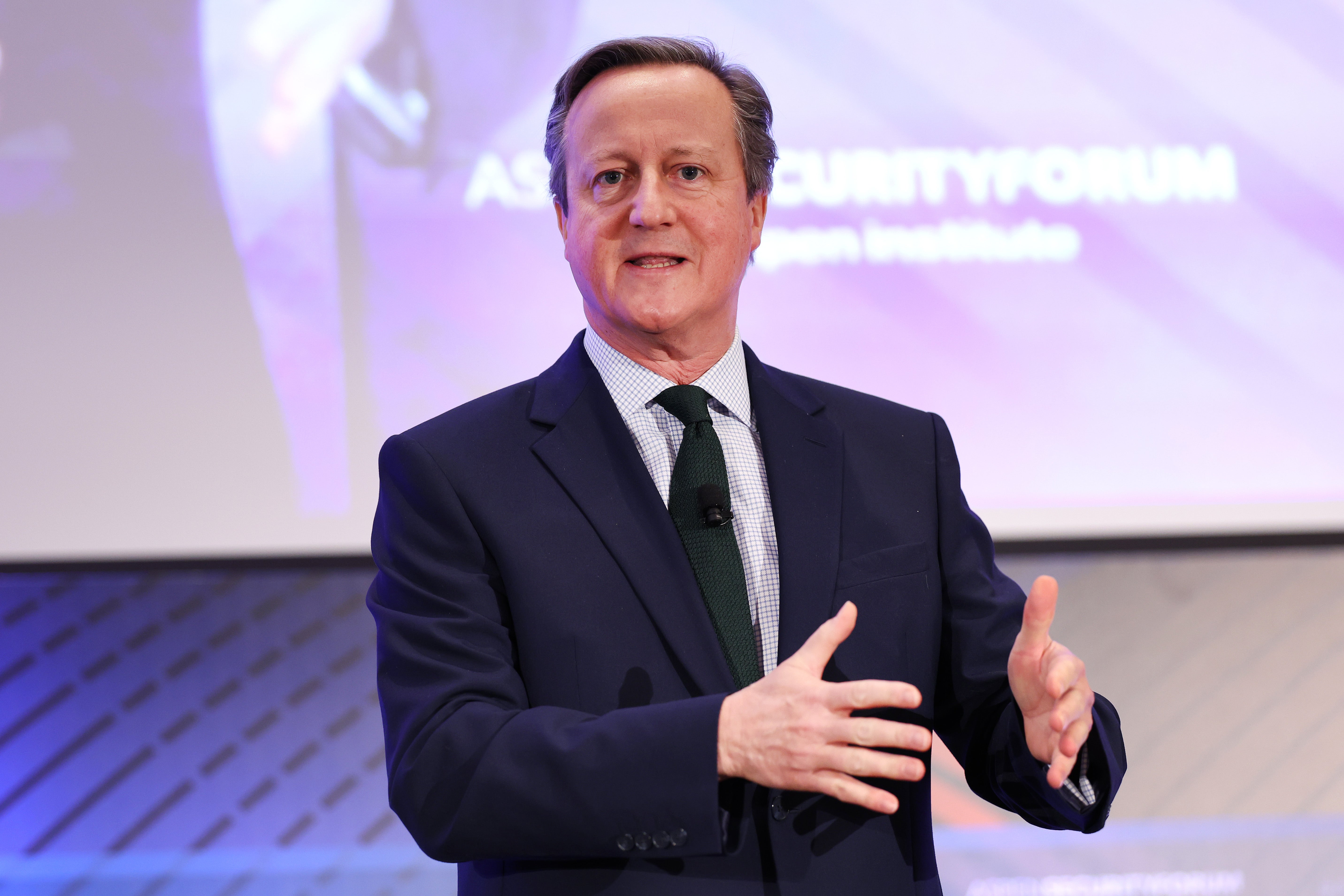Ukraine can still win this war – but it will need our help
Editorial: The foreign secretary’s surprising entreaty to the US Senate – that it should not show the kind of weakness displayed against Hitler in the 1930s – was as timely as it was powerful. The complacency many Western politicians have shown to Russia of late is astonishing: we cannot allow Putin to be appeased

Understandably, but unfortunately, overshadowed by the dynamics of the war in Gaza, which constantly threatens to escalate from fresh humanitarian disaster into a regional conflagration, the conflict in Ukraine seems set firmly in a pattern of indefinite attrition. As such, the balance of advantage is tipping towards Russia.
In line with some striking historical precedents, Russia’s armed forces, and especially its navy, may be poorly led, badly equipped, prone to corruption and incompetent – but there are lots of them. A seemingly endless supply of manpower, of varying quality, and of basic but serviceable materiel, supplemented by supplies from Iran and North Korea, means that it’s possible the Russian “meat-grinder” approach and well-dug-in defensive stance will exhaust the Ukrainians.
Smaller in population, and with reported difficulties in recruiting fresh troops, this is becoming an awkward situation for Ukraine. The summer offensive yielded less territory than hoped, and Kyiv’s allies are proving increasingly unreliable. Short of money, shells and the best fighter aircraft, the Ukrainians are not able to press home the substantial technological edge that Western weaponry has given them, and no matter how brave their soldiers and pilots, there is only so much that can be achieved with valour alone. They need help.
So this is a good moment for a British foreign secretary to campaign to save the Ukrainians (and the West) from a Russian victory that is far from inevitable and should never be accepted as such.
It was the UK, after all, that was one of the first to become alert to the danger of a Russian invasion and began the process of sending armaments and providing training to the Ukrainians. That effort was massively stepped up when the Russian tanks rolled in, and it is to the credit of the then defence secretary and prime minister, Ben Wallace and Boris Johnson, that they led the way by example, at a time when others were only willing to offer “non-lethal” aid.
The message delivered by David Cameron in Washington was very much needed and very much in that honourable tradition – the very real threat posed by a revanchist Russia led by a man on a mystical, if historically unsound, mission to restore its imperial greatness. What seemed obvious to the world in 2022 has somehow lost its clarity as the war has dragged on, attention has turned to the Middle East, and the Ukrainians have failed to make their hoped-for breakthroughs.
A certain amount of fatigue has set in and, in the case of the United States, an unhealthy appetite for isolationism, as if the global conflicts of the 20th century had never happened. Interventions by Donald Trump, allied to his record in office, suggest he has little interest in resisting Vladimir Putin and not much more in the existence of Nato.
America seems to be losing not only its moral compass but any sense of its national security interest. The complacency about Russia is astonishing. Perhaps some Americans think that President Putin will sate his territorial ambitions by being allowed to keep occupied Ukraine.
Yet, as Lord Cameron states: “I do not want us to show the weakness displayed against Hitler in the 1930s. He came back for more, costing us far more lives to stop his aggression. I do not want us to show the weakness displayed against Putin in 2008, when he invaded Georgia, or the uncertainty of the response in 2014, when he took Crimea and much of the Donbas – before coming back to cost us far more with his aggression in 2022.”
Lord Cameron will be able to help rally the allies at the Munich Security Conference later in the week, when Ukrainian president Volodymyr Zelensky will also personally remind the attendees of what is at stake.
The focus now is on the refusal of the Trumpite speaker of the House of Representatives to table the $60bn (£48bn) aid package for Ukraine (and parallel assistance for Israel and Taiwan). Speaker Mike Johnson seems to be in no hurry to put the matter to a vote, in which the aid would be overwhelmingly approved, as it has already been by the Senate. No doubt Mr Johnson knows his own mind and declares himself uninfluenced by Mr Trump. Yet the effect is the same – making the Ukrainian military effort unviable and gifting eastern Ukraine to Russia, even before Mr Trump has a chance to.
These are difficult days for Ukraine, and for the West as a whole – but they are not without hope.
Ukraine has surged for far longer than anyone ever supposed, and is still capable of creative attacking actions, as the latest sinking of a Russian warship proves. About half of the territory once occupied by Russia has been won back, and Ukraine’s civilian population has been admirably resilient in the face of the shelling of residential areas and energy infrastructure.
Russia’s economy is still suffering, and too many of its young men are perishing in a war no one outside the Kremlin wanted. Mr Putin, though cynical, is offering peace talks, a ploy to establish a de facto border on the line of the truce; but it also suggests that Russia doesn’t smell imminent victory.
Ukraine can still win this war on behalf of the West, but it needs help. Without that assistance, Ukraine, America and the West may yet lose another war – but this time a just and winnable one.






Join our commenting forum
Join thought-provoking conversations, follow other Independent readers and see their replies
Comments